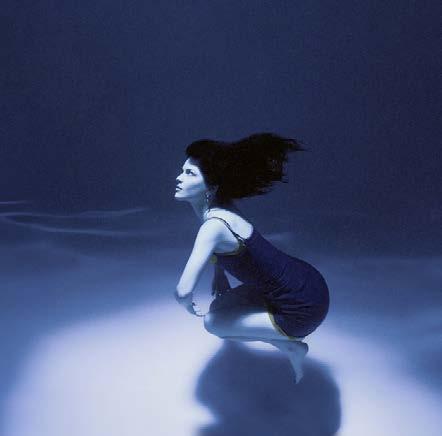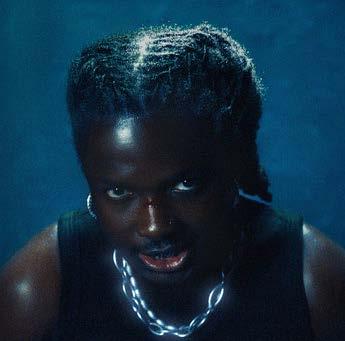












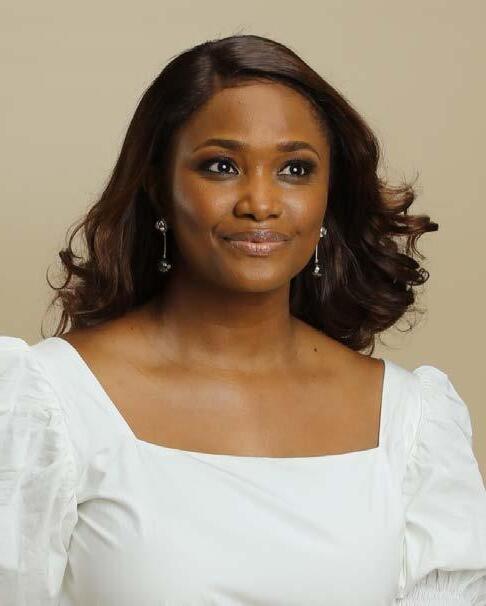

DPhoto: Kola Oshalusi @insignamedia Makeup: Zaron
aniel Etim Effiong didn’t always train as an actor. His parents chose chemical engineering as his course of study at University, but he knew he wanted to be an actor; ultimately, he had to decide what he wanted to do, which was entertainment. He left his job as an engineer to study filmmaking, writing and directing at AFDA Film School in South Africa and then went to the University of Johannesburg to study filmmaking, which paid off because Daniel Etim Effiong is an actor, writer, producer and director known for his versatile talent. Etim Effiong got his big break after playing Lanre Taiwo in the web series The Men’s Club. His performance was so good that he often got asked if he was acting or if the character he played was his actual personality. Playing that character made him booked and busy, as it showed his talent. These days, he has to be careful what roles he takes on; Etim Effiong says he is now a dad, and his kids watch him on television, so he is cautious about the character he plays.
Read Daniel Etim Effiong’s story on pages 8 to 10.
Our fashion page emphasises choosing the suitable fabric for your body type. On pages 4 to 5, we highlight five helpful tips to assist you in selecting the ideal fabric.
While excessive exfoliating can cause skin irritation, not doing it enough can cause dull and congested skin. The beauty page discusses indicators that it’s time to exfoliate. Scroll to page 12 for this.
Music producer and composer Quincy Jones passed away last Sunday. We pay tribute to him on page 14. His music will continue to play.
Speaking of music, download this week’s playlist on page 16. Simply click on the instructions below the QR codes.
Until next week, enjoy your read.

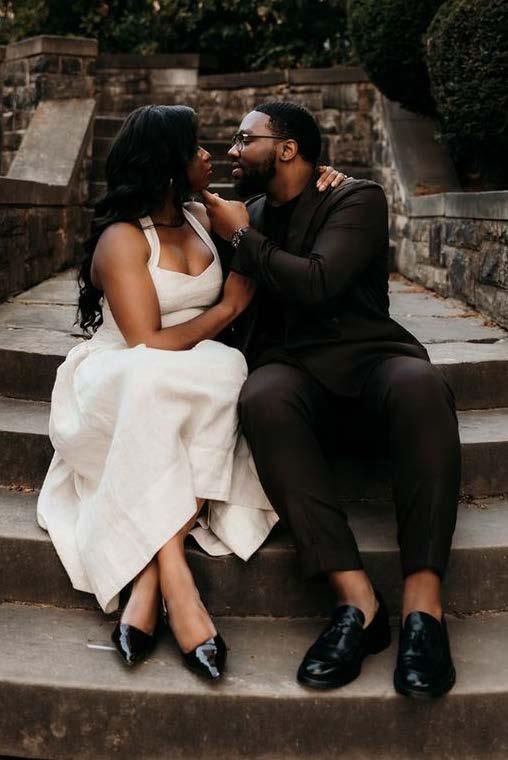
07 How to Choose The Best Fabric For Your Body Type 12 04-05 FASHION
#UNSHAKABLE TRUTHS WELLNESS
#Unshakable is a state of mind Beauty in Broken Things
Real Talk With Daniel Etim Effiong
6 Ways to Know When to Exfoliate
Postpartum Wellness 5 Necessary Self-Care Practices
Honouring Quincy Jones The Visionary Who Broke Barriers in Music
6 Ways to Find The Right Person For You

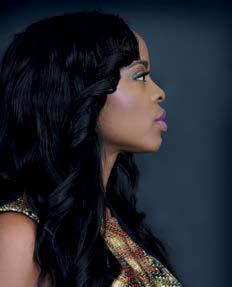
Odun Ogunbiyi @oddbodandthecity - Contributing Editor
Odunayo Ogunbiyi is an ex pharmacist with a passion for food and pampering. Writing about her exploits wherever in the world she may find herself is just her way of staying sane in this zany world.






@onahluciaa + 2348033239132 Onah
AUSTYN OGANNAH
PUBLISHER/EDITOR-IN-CHIEF
Executive Editor: Onah Nwachukwu @onahluciaa
Writer: Johnson Chukwueke
Graphic Design: Olaniyan John ‘Blake’
Digital Media: Oladimeji Balogun
Guest Art Director: Sunny Hughes ‘SunZA’

www.thewilldowntown.com thewilldowntown thewilldowntown




Boluwatife Adesina @bolugramm - Contributing Writer
Boluwatife Adesina is a media writer and the helmer of the Downtown Review page. He’s probably in a cinema near you.
Dorcas Akintoye
Dorcas Akintoye is a dedicated writer with more than 2 years prolific experience in writing articles ranging from food, entertainment, fashion and beauty. She has a National Diploma in Mass Communication from Kwara State Polytechnic, Ilorin. She loves writing, listening to music and playing scrabble. She is a highly-skilled, enthusiastic, selfmotivated professional writer.
Sally Chiwuzie @unshakable.is.a.state.of.mind
- Contributing Writer
Sally Chiwuzie is a non-practising barrister who owns the brand #Unshakable. She is the author of Silent Symphonies, a fictional love story, and the creator of the podcast Chronicles of #Unshakable Truths.





BY DORCAS AKINTOYE
Selecting the appropriate fabric for your body type is crucial when it comes to dressing up. Depending on the material you choose to wear, you can feel confident and at ease in your clothing or the complete opposite. When choosing a fabric, ensure it fits your body well; otherwise, your ensemble may seem unbalanced. This article contains five helpful tips to assist you in selecting the ideal fabric for your body type.
KNOW YOUR BODY TYPE
It is crucial to know your body type before choosing a fabric. While some people have hourglass forms, others could be rectangular, pear-shaped, or appleshaped. Fabrics drape differently depending on how they suit your form and are cut. Cotton, silk, or flexible materials that draw attention to your waist are good choices, for instance, if you have an hourglass form. However, if your figure is pear-shaped, choose materials that flow away from your hips and balance your proportions, like satin or chiffon.

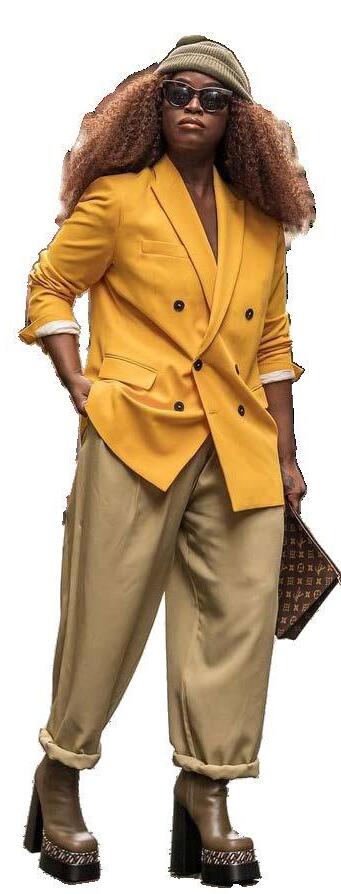
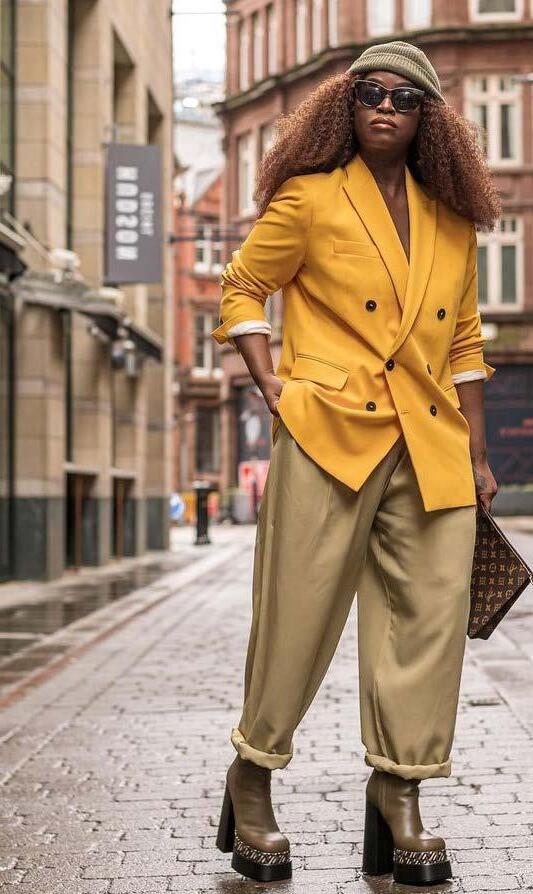

3.
2.
4. GO FOR FABRICS THAT COMPLEMENT YOUR CURVES CHOOSE FABRICS BASED ON THE OCCASION
Depending on your preference, the fabric you select might accentuate or downplay whatever curves you may have. For example, flexible materials like knit, spandex, or jersey can embrace your body in a way that flatters your curves and wonderfully highlights them. Go for heavier materials like wool, denim, or tweed if you’d rather not bring too much attention to your curves. These materials decrease body cling and provide structure.
PICK FABRICS THAT SUIT YOUR COMFORT LEVEL
It’s crucial that you feel at ease in your clothing. Some fabrics are soft and breathable, and others feel harsh against the skin. Fabrics that breathe well and keep you cool are chiffon, cotton, and linen. These are great options if you live in a warm environment or are prone to getting hot quickly. Wool, velvet, or corduroy are excellent materials for keeping warm in colder climates without compromising style. You may concentrate more on enjoying your day than making clothing adjustments if you select a fabric that meets your comfort needs.
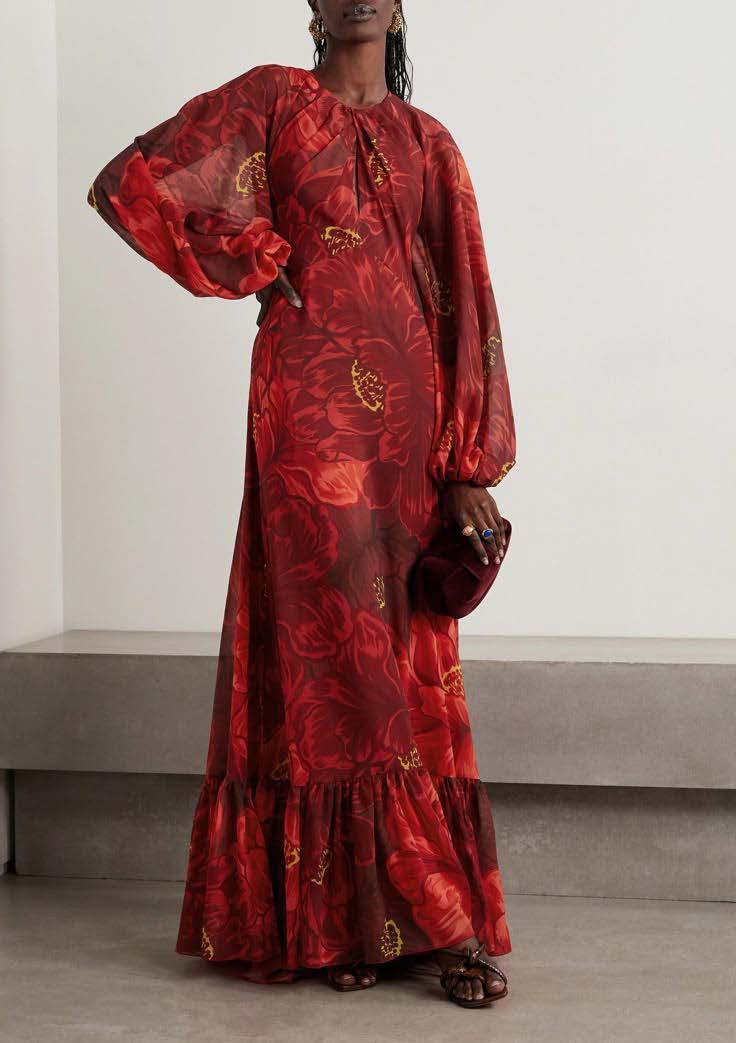
The ideal fabric selection for your body may occasionally depend on the occasion or location. For example, formal occasions frequently call for opulent materials with a more polished appearance, such as velvet, silk, or satin. Cotton and denim, on the other hand, are excellent materials for a laidback yet fashionable look on a casual day out. Remember that different fabrics convey distinct feelings, so pick one that complements your body type and the occasion.
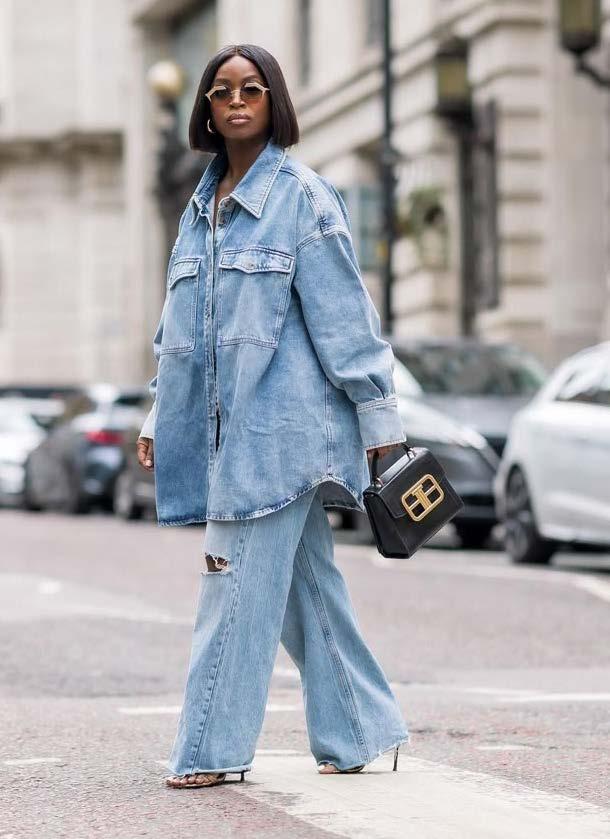
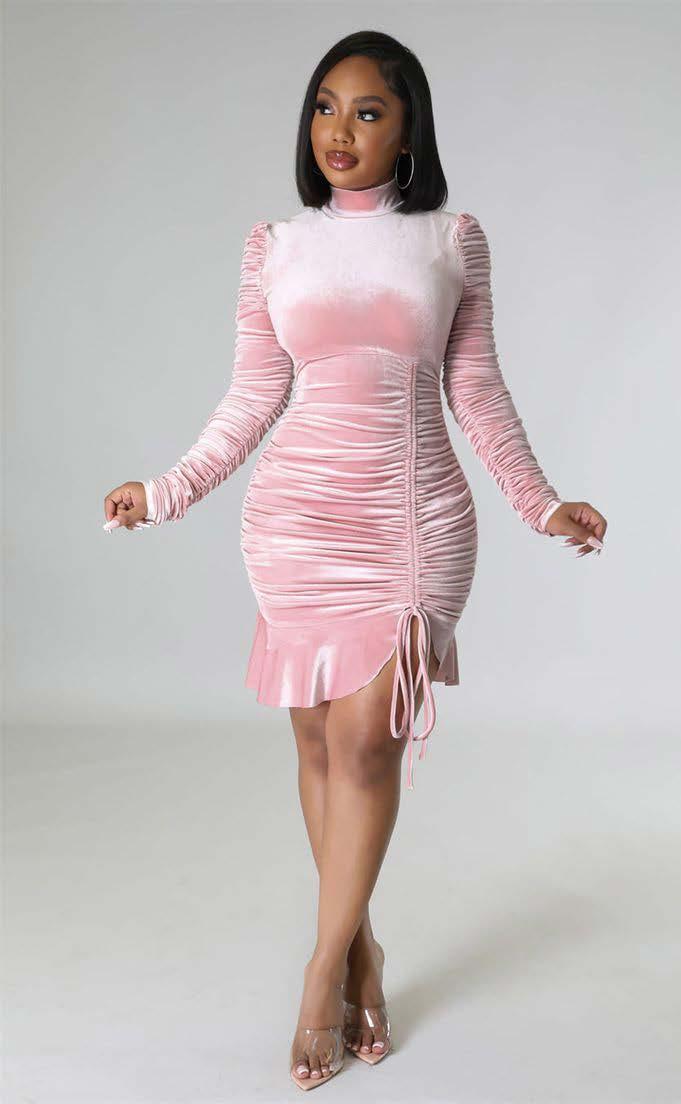
5.
THINK ABOUT HOW THE FABRIC FALLS ON YOUR BODY
The entire appearance of your ensemble might be influenced by how a fabric falls on your body. Certain fabrics maintain their structure, while others flow elegantly. For example, materials like cotton, poplin, or denim that hold their form work well if you want a more structured appearance. On the other hand, silk, satin, and chiffon are great options if you want a more delicate, flowing look. For individuals who want a casual yet sophisticated look, flowing textiles are an excellent way to add a feminine touch.
Mastering the art of selecting the right fabric for your body type can enhance your overall style. You can select the ideal material for every event by knowing your body type, considering comfort, and observing how the cloth stretches or drapes. These tips will assist you in choosing the best option every time, whether your goal is to accentuate your curves or just stay comfortable.




It has been a couple of weeks since I introduced the #Unshakable mindset and focused on the fact that it is a personal journey – not a ‘one size fits all’.
What have you thought about A – K so far? Let’s do something different and pause on K.
K is for kintsugi Kintsugi meaning “to join with gold”—is the Japanese art of repairing broken objects, like pottery or glass, with gold lacquer. This ancient tradition transforms brokenness into beauty, honouring the object’s history and the act of repair. In essence, kintsugi teaches that what has been broken can become even more beautiful when mended. In our own lives, kintsugi becomes a symbol of resilience, reflecting our ability to rebuild after hardship, with our “cracks” becoming unique strengths that add to our character.

and ChiChi lost her best friend. Each faced their own profound loss. Alicia, though deeply in love, had to walk away from her marriage to save herself from a life that felt more like a prison. Bolanle’s husband, her “ride or die,” passed away suddenly—no warning, just an abrupt ending. And ChiChi, after having planned her estate around her illness, ended up outliving Davinda, her closest friend, in a twist that left her both stunned and adrift. Loss, in its many forms, is a singular grief that leaves an empty void so vast it’s hard to believe the world didn’t end with it.
As we sat around the fireplace, I tried to offer comfort.
“The part of your heart that’s been torn out may never return,” I told them.
“But the void, over time, will change, evolving from a gaping hole to narrower cracks that slowly, almost imperceptibly, repair—not with restoration, but with gold. This new strength will make you whole again, not as you were, but as something new and resilient. You can’t experience loss this deep without being transformed by it.”
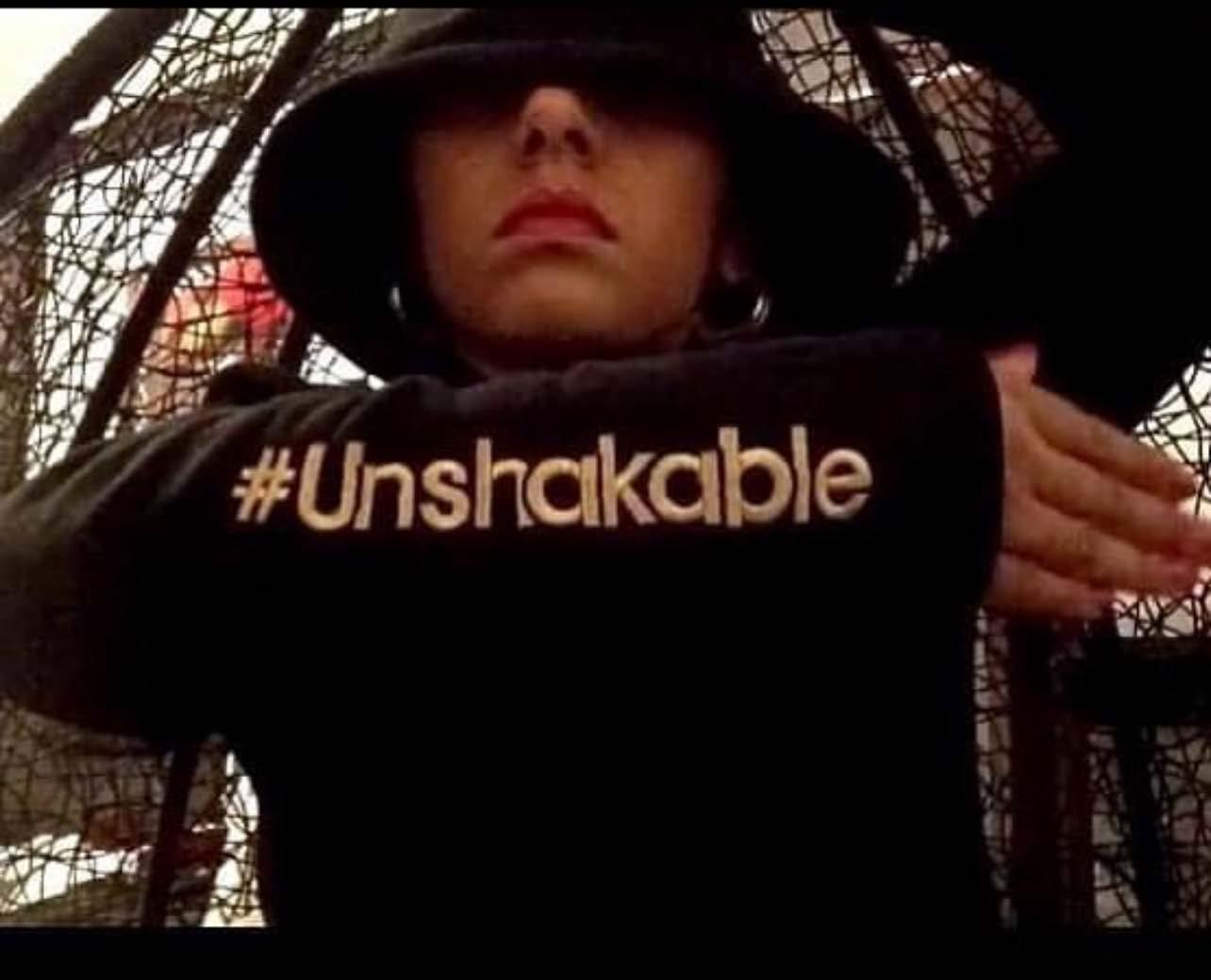
these experiences, wearing the kintsugi-inspired hoodie dress from the #Unshakable shop. As we held hands in a silent circle, our tear-streaked faces reflecting the glow of firelight, I offered a final prayer: “May something beautiful grow in place of what was lost, not to replace it but to honour it, mended with gold.”
At that moment, a sunbeam broke through the window crack, casting a golden glow like a spotlight. Fittingly, Bette Midler’s From a Distance played in the background—a reminder that both grief and healing have endless interpretations and that hope finds its way in the smallest of cracks. Kintsugi is about more than mending objects; it’s about honouring the beauty in scars and the strength that emerges from them.
As I write this, I’m reflecting on a recent conversation with three close friends: Alicia, Bolanle, and ChiChi. Alicia is newly divorced, Bolanle is widowed,
How did I know this? Because this was my journey, too. Had life not thrown its toughest curveballs, the person I am today would not exist, and we wouldn’t be here, bonded by

This is why I chose kintsugi as the inspiration for the hoodie dress. “You are more beautiful for having been broken,” I explained when asked about its meaning. Join me next week as we delve deeper into the journey of becoming #Unshakable.

AversatileNigerian talent known for his lively and energetic portrayals in the industry, Daniel Etim Effiong is an actor, writer, director, and producer. With a steadily evolving career, Etim Effiong’s journey in the spotlight began in Nigeria’s thriving Nollywood film industry, where his powerful screen presence quickly gained him recognition. He is a graduate of the Federal University of Technology Minna and later went on to expand his skill by studying at the AFDA Film School, South Africa and the University of Johannesburg, thereby mixing a strong foundation in the African creative arts with a global view.
Etim Effiong has delighted audiences with his roles in illustrious films and television shows, showing off just how multidimensional he can be in dramatic and comedic performances. His notable works include leading roles in Gidi Up, The Men’s Club, and Plan B, which have earned him widespread admiration and stamped his status as one of Nollywood’s most promising actors. Beyond acting, Daniel’s talent for storytelling shows in his work behind the camera, as he often dwells on matters of love, identity, and societal issues, which are familiar concepts in contemporary African culture.
Etim Effiong’s dedication to his craft and ability to inspire through relatable narratives have made him an influential figure in Nollywood and a rising star on the global stage.
In this interview with THEWILL DOWNTOWN’s Johnson Chukwueke, Daniel Etim Effiong speaks about his creative journey, personal experiences, and future aspirations.
Firstly, can you tell us about the journey from chemical engineering to Nollywood? What inspired such a career shift?
Well, to explain that, I would have to say that I have always been something of a storyteller. Right from childhood, I was always that kid that his mates would come to when they needed to hear stories about something and the like. I would tell them all they needed to know, and of course, I would add my own pepper and spice to the story, you know how it can be; so yeah, I have always been that sort of person, so the engineering part had to do with parents. You know how they would always be like, oh the money is here in oil, so go to school and study this so that you would get a good job and all that. So my parents were really pushing for me to get into that chemical engineering space.
But in the end, I had to decide for myself what I wanted to do, and it was entertainment; I knew I wanted to be an entertainer, so I went for it, and it’s been really good and fulfils me.
Your role in The Men’s Club as Lanre Taiwo brought you a lot of attention. How did that role impact your career afterwards?
Yeah, The Men’s Club. That was a huge one for me, honestly. After that show, I would say it opened doors for me, I got calls, I was booked, and it led to more for me. It’s one of the biggest web series out of Africa, if not the biggest, and having to play that role actually had people viewing me in a different light. I even had people coming to ask me if that was just acting or if I was really like the character of Lanre Taiwo which I played. So if you have people coming to you to ask such questions about a character, it just feels like yeah, you definitely did a good job to warrant such questions. You just know that your interpretation was spot on if the audience can’t tell if you were acting or it’s your actual personality.
“I would have to say that I have always been something of a storyteller. Right from childhood, I was always that kid that his mates would come to when they needed to hear stories about something and the like. I would tell them all they needed to know, and of course, I would add my own pepper and spice to the story, you know how it can be; ...”
You’ve worked both in front of and behind the camera. Do you prefer acting or directing, what do you find most rewarding in each?
Well, I enjoy acting very much, but I enjoy more freedom when I am directing. Let me put it this way, now when I am acting, it does feel like there’s a box, and as much as I want to maybe improvise or something, I still have to stick with what is written, that sort of thing.
“Well, I enjoy acting very much, but I enjoy more freedom when I am directing. Let me put it this way, now when I am acting, it does feel like there’s a box, and as much as I want to maybe improvise or something, I still have to stick with what is written, that sort of thing. But while directing, I am free to express my creativity as much as I want. I get to see something and instantly know how I want it to be done in a better way.”
next because you can’t hold off another set. So we are making the most of what we have, especially when you are a married man; you have this load of responsibilities on your head now, so you try to take on as many projects as you can handle to take care of things.
In Skin, you tackled colourism in African society. How did creating this documentary affect your perspective on the issue?
You see, I realised that people would do a lot when they want to fit in. It’s something that is common, but it really shouldn’t be. You see lots of people who do things to their skin cause they feel that only people with a certain type of shade get more attention, and that would be the best way to fit in.
We spoke to a few people, especially the ones who make these products for people to use, and it really was heartbreaking hearing their stories and why they had to resort to making these, especially with the economy not favouring them. It just makes you sit back and think, both about the people making these products, and those who feel they are only as good as the shade of their skin.
“I would say that being an engineer gives me this sort of problem-solving skill, so I make sure to harness and make use of this skill even as an entertainer. Things happen out of nowhere and it requires you to do something you know, and then I just have to think fast, move quickly, and find a solution.”
But while directing, I am free to express my creativity as much as I want. I get to see something and instantly know how I want it to be done in a better way. I have no boundaries when it comes to my creativity, and that is very important to me. It’s like there is no restriction when it comes to my story, and I can tweak it if I see there is a better way to bring it to life. I definitely prefer taking the director’s seat, it makes me feel free to express myself more.
What challenges have you faced in developing and sustaining a Nigerian film industry career?
That would be resources. We are basically doing what we can with what we have. I feel the filmmakers don’t get enough credit for what they do, especially when there have to be lots of projects that one is handling. You are on set for a particular project, and then you jump to the
Nollywood is growing internationally. What are your hopes for the future of Nigerian cinema, and how do you see your role in that? I would say that I just want to be part of it, I want to be able to tell my stories the way I want them, I want to tell them differently, but good different of course, something that I can be proud of, and just see that yeah, this is me unleashing my creativity. Telling my stories how I want to.
As a husband and father, how do you balance the demands of your career with family life?
Just be there and make the most of the time I get to spend with my family. Even when I have to be at different places, I make sure I make it up when I am back home and enjoy every bit of time with my family.
In your marriage, what values or practices have helped you maintain a strong partnership despite the busy life of an actor and director?
One way would be to keep each other updated. That’s it. We always make sure we let each other know about things as they are happening. That way, we are both in sync and even know how to work through things that may just arise from nowhere. That has really helped, especially in making things easy in maintaining our relationship.
With your background in engineering, has that side of you influenced your approach to acting or storytelling in any way?
I would say that being an engineer gives me this sort of problem-solving skill, so I make sure to harness and make use of this skill even as an entertainer. Things happen out of nowhere and it requires you to do something

you know, and then I just have to think fast, move quickly, and find a solution, especially when I have a lot to do and somewhere else to be.
What would you say is the most rewarding aspect of being a father, and how has it shaped you personally and professionally? It makes me more responsible now, that’s what I would say. I know right now, I am not living for myself alone; I am living for myself and also my family, so when that thought comes to mind, you just have to do things differently in a way that makes you come home to them. You can’t take silly risks; you live your life for them,
and you just know how much they need you to be there. So yeah, fatherhood makes me more responsible in every way.
How has fatherhood influenced the kinds of stories you want to tell or the roles you want to play? I have my children seeing me on the television, so you know it can’t just be anything I am displaying because they are children, and it’s easy for them to think that’s actually how it is when, obviously, it is not. So, it definitely has made me cool down on some roles as I have my children watching and seeing their father on television.
What advice would you give to aspiring actors and filmmakers who want to make an impact in Nollywood?
It’s not always easy, but just know what you want to do, and go for it, even parents wouldn’t see it at first. But going for what’s in your heart is something everyone needs to embrace; it’s never easy, but worth it.
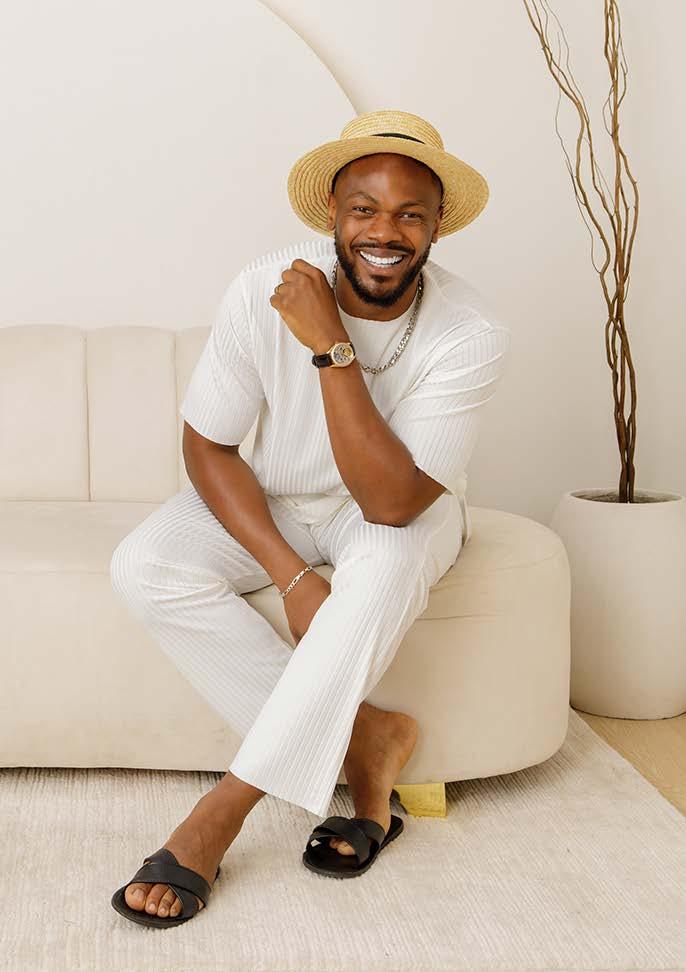


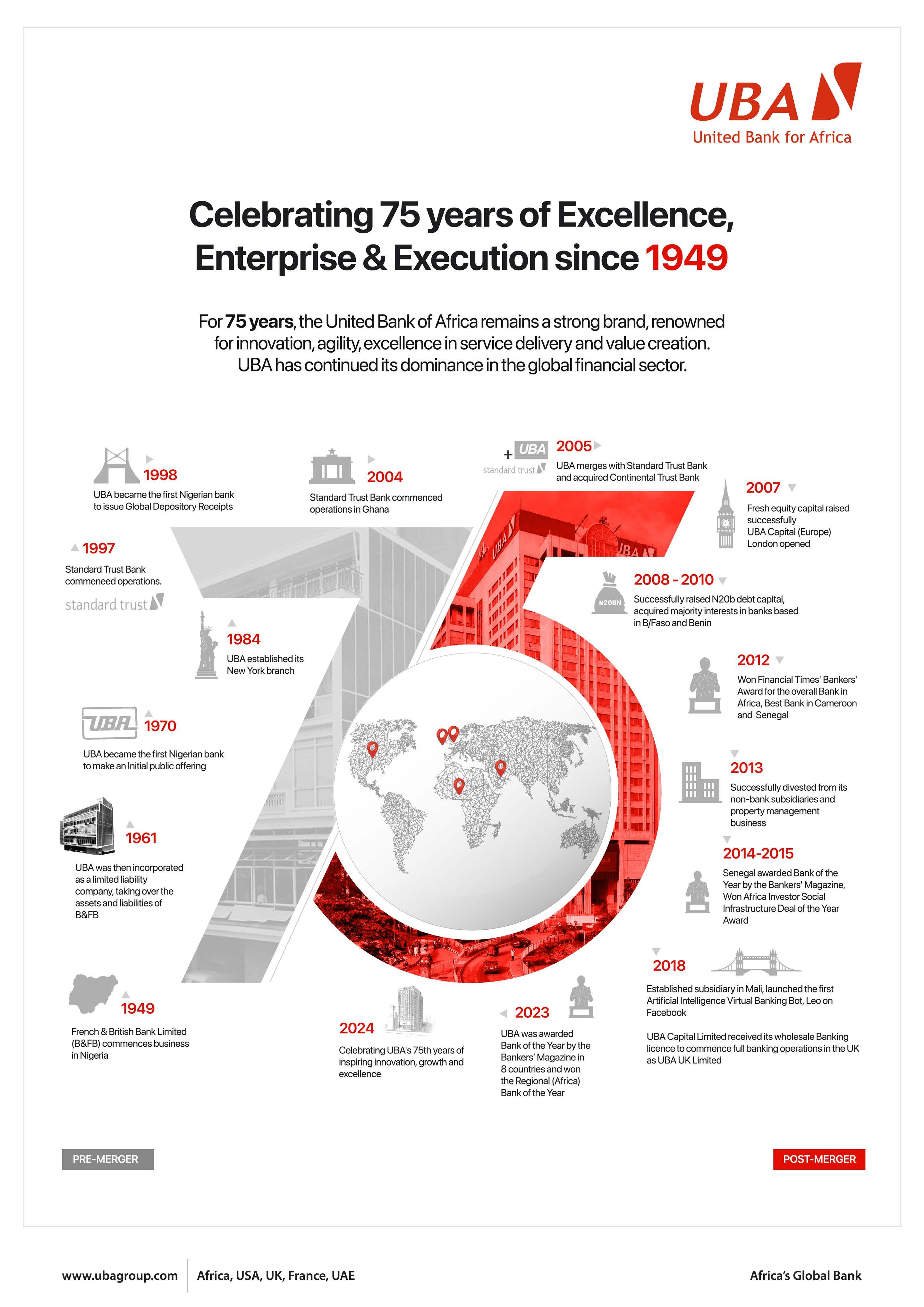
BY DORCAS AKINTOYE
Exfoliation is a vital component of every skincare regimen. It aids in pore cleaning, removes dead skin cells, and reveals radiant, new skin. However, how can you determine the ideal time to exfoliate? Excessive exfoliation can cause skin irritation, but not doing enough can leave the skin dull and congested. This article will explain six obvious indicators that it’s time to exfoliate.
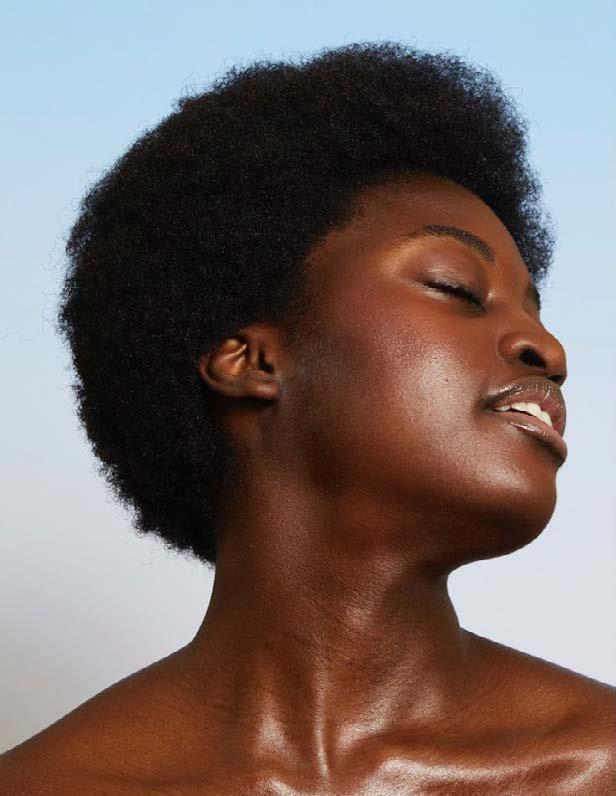
2. YOU NOTICE DULLNESS OR LACK OF GLOW
1. YOUR SKIN FEELS ROUGH OR DRY
Sensitivity to dryness or roughness of the skin is one of the easiest indicators that it’s time for an exfoliation. Dead skin cells accumulate on the surface, which is typically the cause of this. When there is an accumulation of dead cells, your skin feels dry and flaky. Exfoliating to eliminate these dead cells may help your skin feel smooth, silky, and renewed.
It may be time for an exfoliation if your skin appears dull and lacks its usual radiance. Dead skin cells can prevent light from reflecting off your skin, giving you a lifeless appearance. By exfoliating your skin, you can see the bright, new skin behind the covering of dull skin. For this reason, exfoliation is frequently the first step taken by those who want to lighten their complexion.
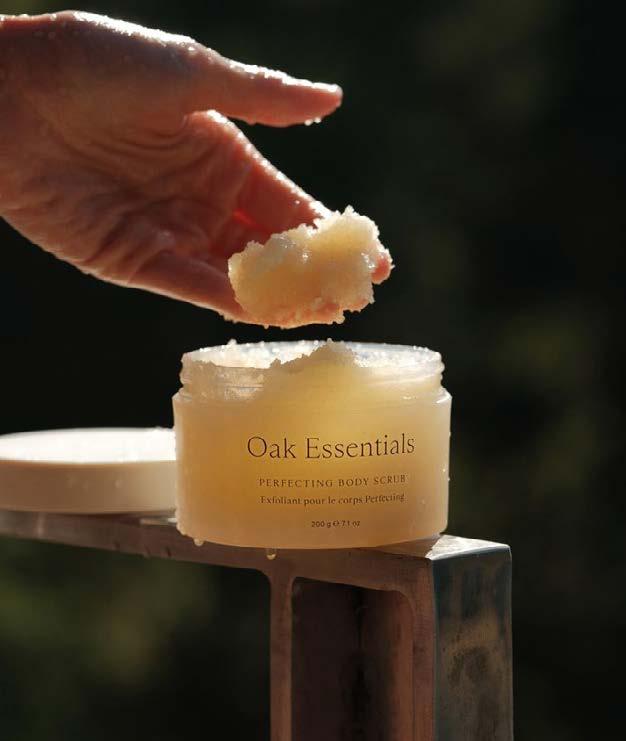

3. YOU’RE BREAKING OUT MORE THAN USUAL
Exfoliating can be a saviour if you are breaking out more than normal. One of the main reasons people get blackheads and pimples is clogged pores. Blemishes result from dead skin cells, oil, and debris lodged in your pores. Exfoliating helps improve skin hydration and lowers the likelihood of breakouts in the future.
4. YOUR SKINCARE PRODUCT AREN’T ABSORBING WELL
You may need to exfoliate if your favourite oils, serums, or moisturisers aren’t absorbing as efficiently as they once did. The accumulation of dead skin cells forms a barrier that prevents the thorough penetration of skincare products into your skin. Exfoliating removes this barrier, guaranteeing that your products function better and provide greater outcomes.


6.YOU HAVE NOTICEABLE BLACKHEADS OR WHITEHEADS

If you notice whiteheads or blackheads on your forehead, chin, or nose, you should exfoliate your skin. These are caused by clogged pores overflowing with dead skin cells and oil. Exfoliating your skin regularly can help minimise the appearance of existing blackheads and whiteheads and help prevent these problems from developing.
5. YOUR MAKEUP PRODUCTS LOOK PATCHY OR UNEVEN
Have you ever noticed that, despite your best efforts, your powder or foundation appears uneven or cakey? Dead skin cells may be the source of the skin’s uneven texture. Exfoliating smoothes out your skin, facilitating even application of cosmetics and extending its wear time.
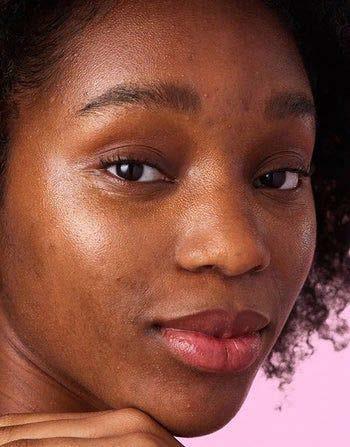
Determining the appropriate time to exfoliate is equally crucial to preserving radiant, healthy skin. The ideal timing for exfoliation can be determined by observing how your skin appears and feels. Signs like rough texture, breakouts, and dullness indicate that it’s time to remove dead skin cells and reveal gorgeous, new skin beneath. Once or twice a week is sufficient exfoliation for most skin types, so keep that in mind and don’t overdo it.
BY JOHNSON CHUKWUEKE
It is common knowledge that childbearing puts a lot of strain on a woman, physically and mentally. The postpartum period, also known as the “fourth trimester,” is another intense phase requiring the same amount of care and attention as the pregnancy phase. This period is vital for new mothers who need to recover physically, adjust their emotions, and bond with their newborns. Carrying out self-care is important in manoeuvring these changes. Here are five effective self-care practices that support postpartum wellness, helping mothers regain balance and strength during this period.


Sleep deprivation is one of the most common postpartum challenges. Newborns have irregular sleep patterns, which can seriously affect a mother’s sleep quality. Try to rest when your baby sleeps, even during the day, and consider help when possible. Adjusting to sleep whenever your baby naps might require you to be flexible, but it allows for more restful breaks that boost mental clarity.
The postpartum period brings about emotional highs and lows, with some women experiencing postpartum depression (PPD). These emotional changes are common but can be overwhelming. Finding a support network is advised. Whether through family, friends, or dedicated postpartum support groups, they make a significant difference. Many women also benefit from talking to a therapist specialising in postpartum mental health to process and navigate these emotions.

FOCUS ON NUTRIENT-RICH MEALS
Nutrition is the core of postpartum recovery. Eating nutrient-rich meals that include lean proteins, complex carbohydrates, healthy fats, and abundant fruits and vegetables can support physical healing and energy maintenance. Foods rich in omega-3s, such as salmon or chia seeds, help manage inflammation. Hydration should not be neglected, especially for breastfeeding mothers, as it helps in milk production and overall health.


Physical exercise post-pregnancy can boost mood, improve circulation, and support a quicker recovery, but it has to be approved by a healthcare provider. Engage in gentle movements like walking, stretching, or beginner-level yoga. Focus on pelvic floor exercises can help rebuild muscle strength that may have been stretched or weakened during childbirth. Regular light exercise is also effective for easing common postpartum discomforts like back pain.

Personal time may seem impossible due to the demands of a newborn, but creating brief, mindful moments for yourself can make a difference in mental well-being. It could include taking a relaxing bath, reading a few pages of a book, journaling, or even enjoying a cup of your favourite beverage. Just make sure to try activities that bring joy or help with relaxation. They help recharge the mind and boost a positive mindset, which the mother and her family need.
It is important to note that self-care also sets a positive foundation for a strong, healthy relationship with both themselves and their baby. Every woman’s journey of postpartum recovery is different, and prioritising wellness is a necessary part of nurturing oneself.
BY DORCAS AKINTOYE
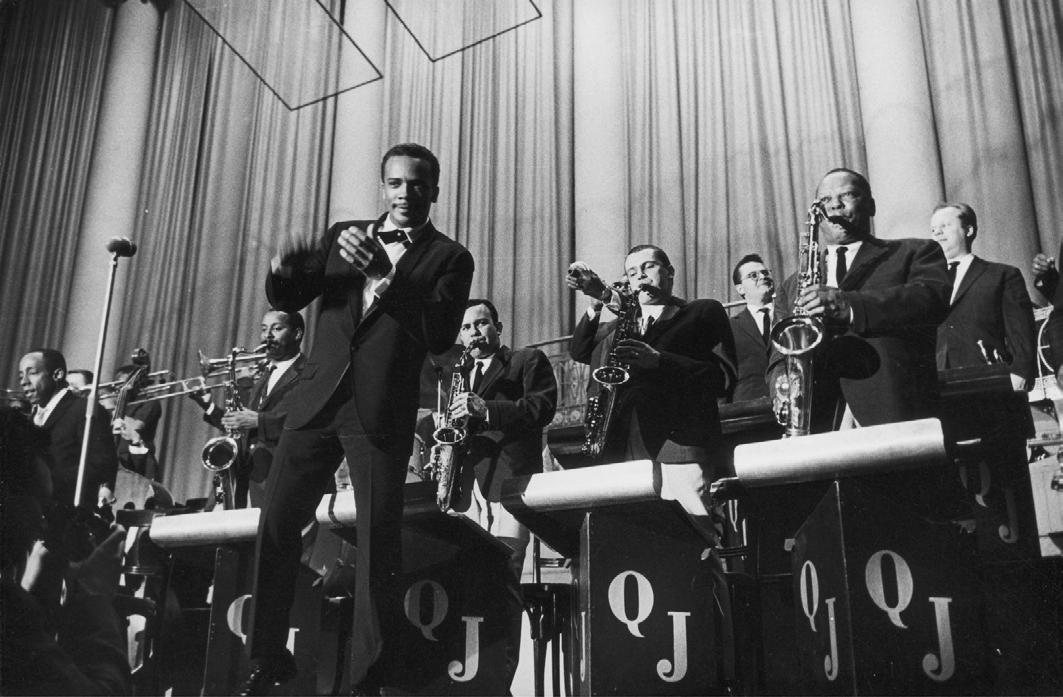
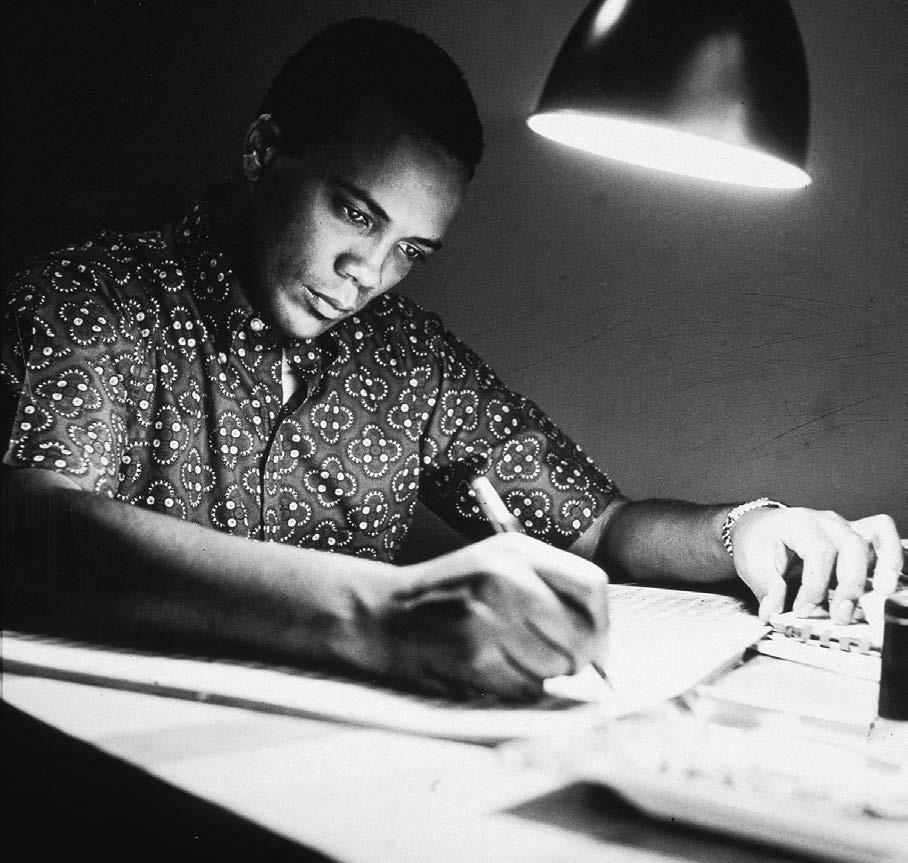
Quincy Jones, the renowned producer, composer, and entertainment pioneer in the United States, passed away on November 03, 2024, at 91. According to Arnold Robinson, his publicist, Jones, passed away peacefully at his home in Bel Air, surrounded by his loved ones. By influencing generations of music and advancing the careers of innumerable musicians, he made an enduring impact on music and culture.
Quincy Jones was born on March 14, 1933, in Chicago. His musical career started early, with jazz influencing him from his teenage years when he performed with young Ray Charles. His transition from being a jazz trumpeter and bandleader to a renowned producer, collaborating with luminaries like Michael Jackson, Aretha Franklin, Donna Summer, and Frank Sinatra, demonstrated his unparalleled adaptability. His collaborations with Jackson, particularly on albums like Thriller, Bad, and Off the Wall, revolutionised pop music and established Jackson as the King of Pop. Thriller remains the best-selling album of all time. Jones’ career was both innovative and


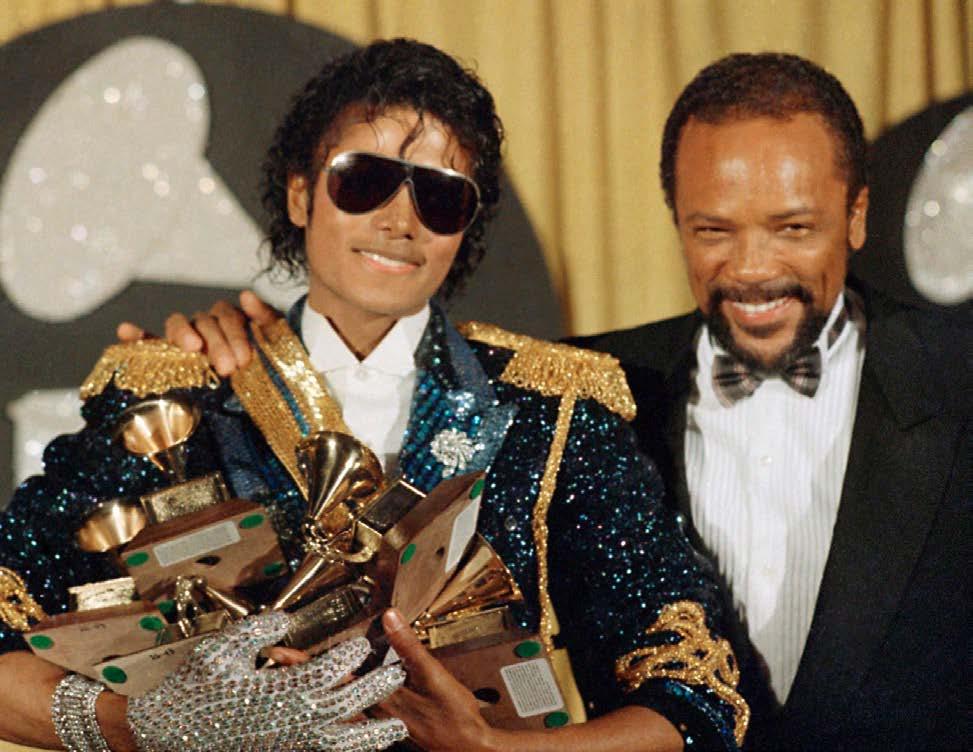

broad. He went on to compose music for TV series like Roots and films like The Color Purple after becoming the first Black person to be nominated for an Oscar in 1968 for The Eyes of Love. With the popular sitcom The Fresh Prince of Bel-Air, which established Will Smith’s career, he even had an impact on television.
Jones is third only to Beyoncé and Jay-Z in terms of Grammy award nominations of all time—80 to their 88 each—and is the awards’ third-most-garlanded winner, with 28. Jones continued to innovate in his later years to ensure his influence reached new audiences. In 2017, he launched Qwest TV, which made jazz and other music available on demand.
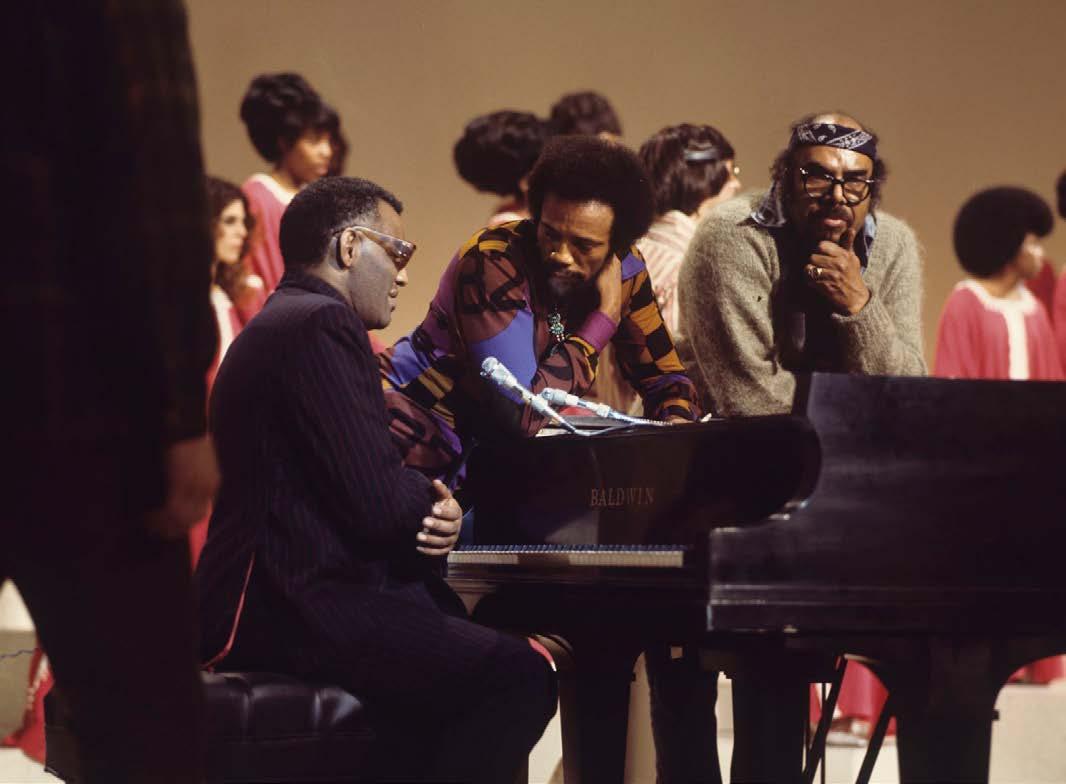
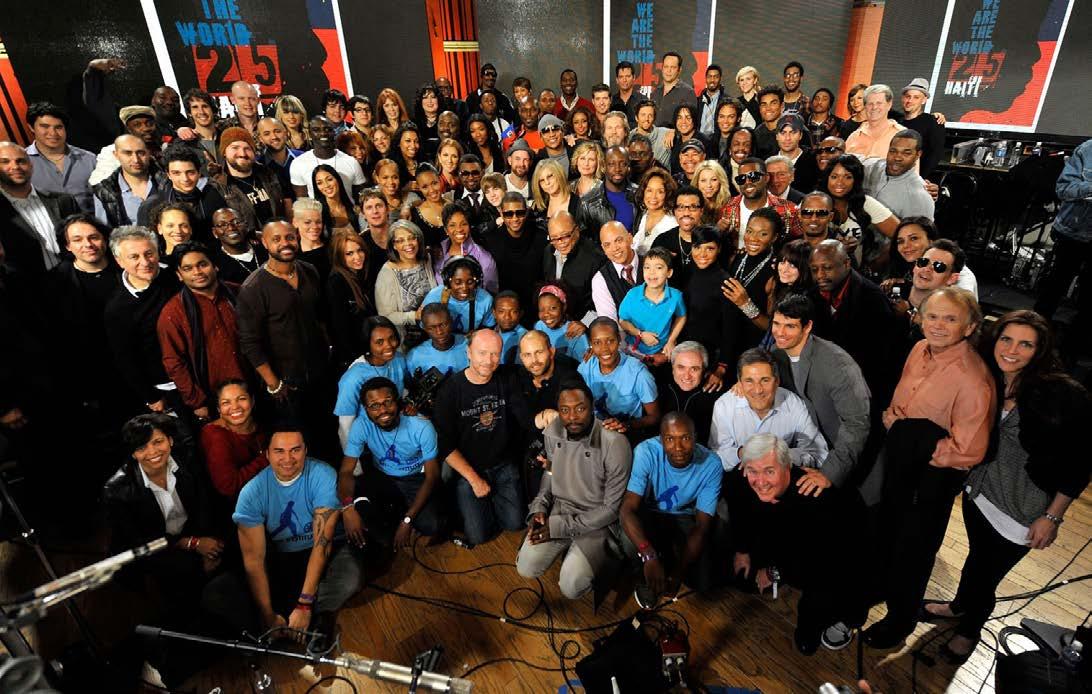
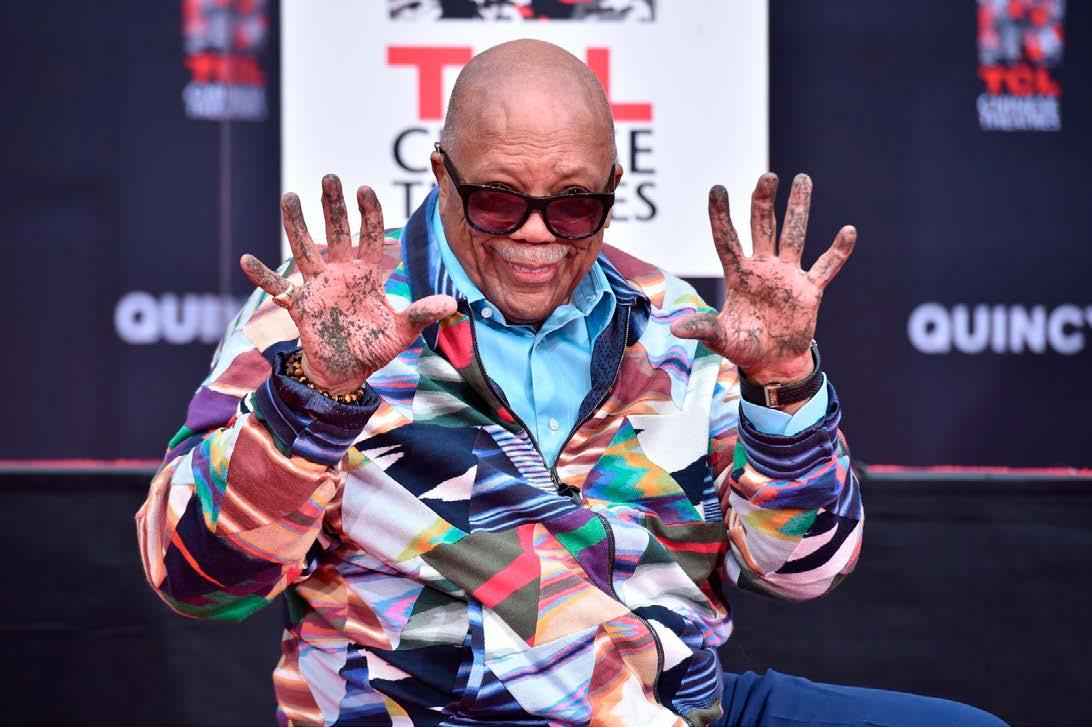
BY DORCAS AKINTOYE
F
inding the right person to build a relationship with can seem difficult. However, it doesn’t necessarily have to be complicated. There isn’t a foolproof method, but several strategies can help you find someone who genuinely shares your values. It all boils down to patience, self-awareness, and making deliberate decisions. These six practical methods will help you find the ideal person for a fulfilling and long-lasting relationship.

2. SET CLEAR BOUNDARIES
1.KNOW YOURSELF FIRST
It’s crucial to know yourself before you find someone who is right for you. It’s more difficult to meet someone who fits your needs if you don’t know what you want from life. Think about your principles, your happiness, and your life’s ambitions. You can draw in people who complement your personality by being aware of your likes, dislikes, and shortcomings. Finding someone who accepts you for who you are is easier when you are at ease with yourself.
To find the right person, you must first set your boundaries. You can avoid needless suffering by being aware of your deal-breakers and what you’re ready to accept. Are you trying to find someone who believes in the same religion as you do? Or perhaps you require a companion who honours your need for privacy. By establishing your boundaries early on, you can weed out those who don’t fit your needs and make a place for those who do.

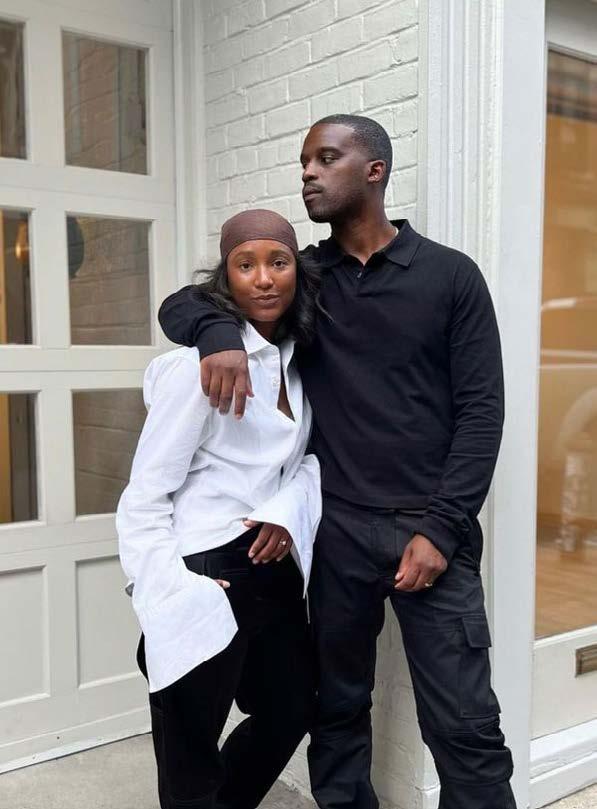
3. LOOK BEYOND PHYSICAL ATTRACTION
While physical appeal has its place, it shouldn’t be your primary focus. Deeper ties like mutual respect, emotional compatibility, and shared ideals form the foundation of an enduring partnership. The ideal person makes you feel listened to, respected, and cherished. Don’t base your relationship pursuits mostly on flimsy characteristics like appearance or social standing.

4. DON’T RUSH THE PROCESS
Although it’s easy to feel pressure from friends, family, or society to find a partner right away, hurrying into relationships can often result in disappointment. Before committing, take your time getting to know potential partners well. Examine their behaviour in various contexts, interactions with others, and approaches to difficulties. Waiting for the perfect person is preferable to settling for the wrong one since it takes time to build a solid foundation.
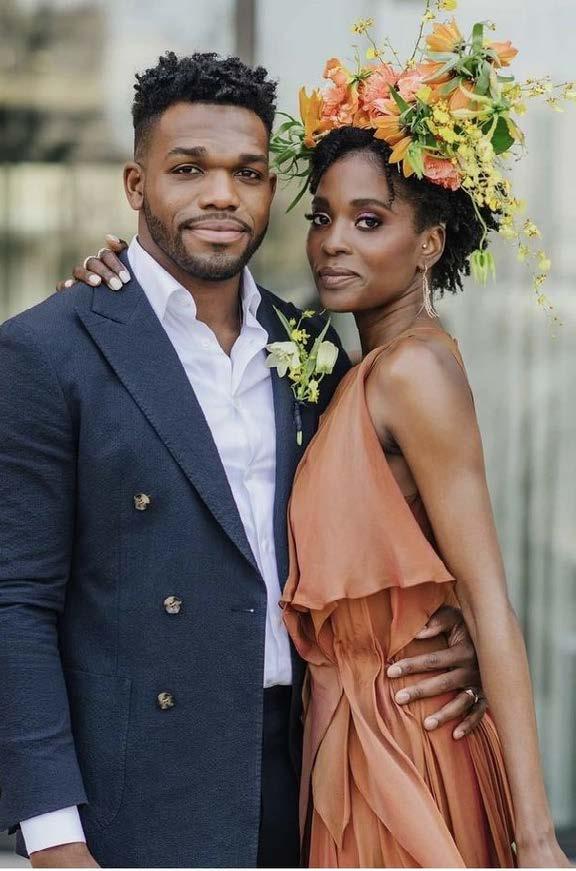

5. FOCUS ON EMOTIONAL COMPATIBILITY
The foundation of an effective relationship is emotional compatibility. This involves finding someone whose energy levels, communication preferences, and emotional requirements coincide with your own. Do you both have comparable coping mechanisms for stress? Can you express your emotions honestly without fear of criticism? The appropriate individual will respect your feelings and provide you with a sense of emotional security. They will be someone who encourages your emotional health and with whom you can be vulnerable.
6. LOOK FOR SHARED VALUES
While differences in hobbies and interests can make a relationship exciting, shared values are what help sustain a relationship in the long run. Finding someone who shares your beliefs about important life issues like family, career, religion, or personal goals is important. If you want children, but your partner doesn’t, or if you value financial stability but they prefer a more carefree lifestyle, these differences can create friction later on. A relationship is more likely to thrive when both partners are on the same page about what truly matters.
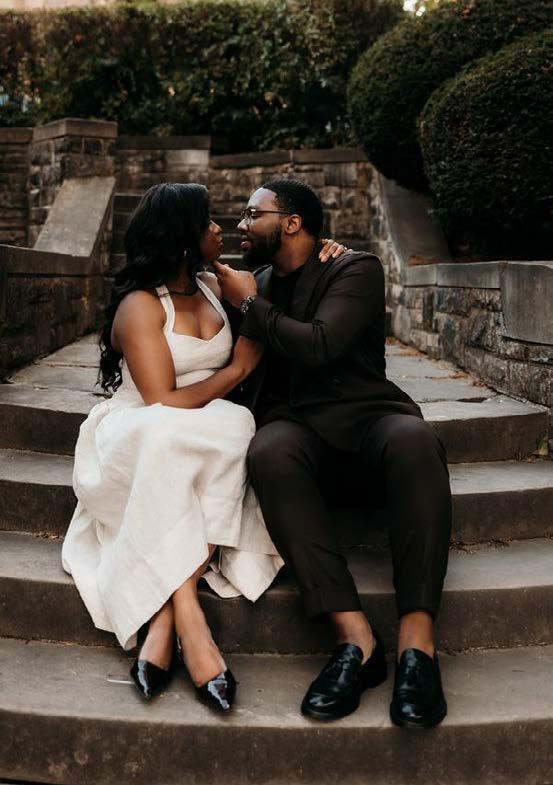
Finding the ideal person for you requires more than luck; you need to know what you want, understand yourself, and be patient. Prioritising emotional compatibility and shared beliefs and taking your time increases your chances of creating a deep and enduring relationship. Keep in mind that the ideal individual will not only fit into your life but will also significantly improve it.
BY BOLUWATIFE ADESINA

Midsommar is a many-splendoured— many-categoried—thing.
Aesthetically, it’s sun-blanched, flower-child “daytime horror,” with a colour palette seemingly borrowed from a rainbow. Narratively, it’s nordic pagan “folk horror,” where terror lies in the arbitrary irrationality of human social codes and cultural tribalism. Commercially, it’s the kind of glossy, conceptually ambitious, highly stylised “elevated horror” whose makers tend to self-reflexively emphasise the qualities that differentiate their work from “mere” genre cinema, and whose contours have been litigated by a certain kind of trend-hungry critical discourse for several years now. As in his first feature film (Hereditary), director Ari Aster has harnessed a singular mode of uneasiness in Midsommar that is cumulative and insidious: every set piece is composed of precise, striking visual elements that are at once abstract and potently, primally suggestive.
The framing story is one of millennial relationship ennui: Dani and her boyfriend Christian are unhappily coupled, and a breakup is imminent. When a horrific family tragedy befalls Dani, the relationship tacitly shifts into a state of suspended animation, and she gratefully leaps at the chance to tag along with Christian and his graduate school friends on a boys’ trip they’ve planned to Sweden, as a means of getting distance from her intolerable new reality.
The destination is an idyllic farming commune, where the residents’ enthusiastic attunement to nature is coupled with attitudes toward the human life cycle that the American grad students find startlingly dystopian. When the visitors arrive, the community is about to begin celebrating a nine-day midsommar festival in honour of the solstice, to a lavish extent that apparently only occurs once every 90 years.
Hallucinogenic drugs are liberally dispensed, accompanied by rigid protocols for communal dining and ritualised social engagement. The symbolic meanings and concrete implications of these traditions are never quite explained, but a carefully accruing burden of generalised foreboding, paired with the vividly rendered and textured world-building
effect of architecture and decor— starkly austere wooden barns and minimalist structures referred to as “temples,” all scattered across the bright grassy landscape— more than compensates.
On Dani’s part, the sense of dread is existential, having more to do with her preexisting emotional state than with any of the off-putting behaviours that she and her companions witness in the Swedish countryside. The sickening extremity of her initial private trauma casts a shadow over the whole film, with such ambient intensity that not even the relentlessly saturated sunlight or the unflappably tranquil conviction of her very welcoming hosts can dispel its pall. As morbid angst gives way to an overtly horrifying series of events, our protagonist’s preemptive alienation is formally consequential: if she’s already experienced the worst, then what are the narrative and generic stakes of her fear (and ours)? What exactly is she afraid of— which is to say, what does she have to lose?
As Dani, Florence Pugh carries the movie. Her wry matter-of-fact commitment to the character’s tenuous subjectivity allows Aster’s storytelling to vacillate between blistering satire, broken-in psychological realism, and straight-faced ominousness.
The whole cast is infectiously superb and temperamentally on point, but it’s Pugh who drives home the film’s central idea: that grief is foundationally destabilising in such a way that salvation must be found not in the fallible intimacies of individual human relationships but in submission to the order-making rites and rituals of a social world—that is, initiation into a tribe. What’s terrifying in Midsommar is not the immense spectre of loss that hangs over Dani, nor the strange and uncannily foreign logic of the commune’s traditions, but the very fact that Dani’s loss might have pushed her into a state of alienation within which that logic feels no more strange or foreign or uncanny than the newly unrecognisable home she’s left behind.




Dexter Morgan is a blood-splatter analyst for Miami police by day and a serial killer with a conscience by night. Although he takes both jobs seriously, he is also acutely aware of the ridiculousness of his situation, turning up at crime scenes where he is both perpetrator and forensic expert.
Based on the novel Darkly Dreaming Dexter by Jeff Lindsay, Dexter isn’t just clever and original, it’s also incredibly funny, which is quite an achievement given its gruesome subject matter. In fact, if it weren’t for



the serial killer theme, Dexter would have more in common with the likes of Curb Your Enthusiasm’s Larry David than Hannibal Lecter. Yes, there’s a lot of blood, but you don’t ever actually see Dexter killing peoplethe camera cuts away, allowing us to imagine the rest and still empathise with our protagonist. And, crucially, Dexter observes a strict moral code: he only kills people who really deserve it - generally other murderers whom
the police have failed to nail. This policy is known as Harry’s Code, after Dexter’s foster father, a former policeman who, on realising his son’s urges, trained him to use them for good (sort of).
Played with wit and complexity by Michael C Hall, Dexter’s extraordinary double life somehow seems believable by just the third episode of the first season. And the cat-and-mouse aspect of Dexter’s life makes it perfect for binge viewing. Once you’ve got your head around the concept of a likeable sociopath, you can relax and enjoy being in on his big secret. (What’s more, as well as being a serial killer, Dexter is a massive commitment phobe; then there’s the fact that his sister - a policewoman, of all thingskeeps trying to get him to open up.) It sounds crass and tasteless, and it would be, were it not for the fact that Hall makes Dexter so damn lovable.

